I can’t remember when Alison and I first met on twitter or what we started chatting about but somehow we discovered that we’re both dairy farmers with similar sized herds (at the time) and we share a birthday. Someday we plan to meet on our birthdays – be that Ireland, Australia or somewhere in between!
Alison also blogs and I thought that by doing a featured interview with her, you’d all get to know here too. I sent her questions some time ago (once I started asking questions, I couldn’t stop!) and much to my embarrassment, she sent them back about 6 weeks ago and it’s taken me this long to get to put them up! No excuse apart from being busy.
My name is Alison Germon. My husband Steve, with our kids Dean, Jessica and Arley, are dairy farmers on a leased farm at Dolly?s Flat near Wingham on the Mid North Coast of New South Wales, Australia.
Of our 300 acres, about half is irrigated and it is mostly pasture improved. We live in a high rainfall (1175mm) temperate area. The summers are warm ? ok, really hot! ? and the winters are generally mild but wet. Except the last two years.
Our pasture has a summer kikuyu base into which we plant ryegrass, clovers, oats and other pasture types depending on availability and the season for winter feed and spring silage making. We also grow some irrigated Lucerne, which has saved our proverbial bottoms this year. We are considering growing corn and sorghum for silage this year.
Our herd is predominantly black and white, though they are not entirely Holstein. We are big believers in F1?s, and they have proven their hardiness and ability to spring back during both floods and droughts. Our crossbreds are a United Nations herd ? Jersey and Brown Swiss mostly. I have one pet Guernsey that I?m pretty sure may have been in the stable Jesus was born in. Our son has a couple of Illawara cows. They are an Australian breed.
This year, we decided we needed to make a decision on herd size. We either had to grow or develop an exit plan. We purchased some cows late last year which have shown themselves not to be what was on the label. That has put us behind a lot.
We were offered up to 120 Holstein cows for free recently. The deal is, though, we have to produce the equivalent in Wagyu calves at 100kg landed to supply the feedlot that owns the cows. We agreed to take 85. This bought our wet herd up to 220.
Anybody that has had anything to do with Wagyu calf rearing has said to me that they are born to die. I find this statement both upsetting and fortifying.
It?s upsetting that anyone can think of a living creature in such a negative way.
Fortifying because it makes me want to show them it can be done.
22 calves ranging in age from new born to about six weeks old arrived with the cows. Five weeks later, they are all alive, healthy and growing at a rate of knots!
I grew up on a beef cattle farm about 100kms from where I live now, up in the mountains, surrounded by sub-tropical rainforest and eucalyptus trees, a beautiful river and the Nowendoc Valley. Native wildlife included Kangaroos and Wallabies, koalas, dingos, platypus and all manner of possums and other tiny marsupials. My dad is a conservationist, leaving about 60% of the place in a close to natural state.
We bred Poll Herefords when I was younger, and moved into crossing them with Angus later.
My life revolved around horses from the moment I could walk. I don?t actually remember learning to ride. I learnt to break in and train stock horses at 12. I spent every waking moment available with them.
Some would say my childhood was kind of idyllic.
I went to an agricultural college after high school, to learn about other agricultural industries. From there, I went to work on a large cattle station near Coonamble in north western New South Wales. ?Muttama? was owned by the Australian Agricultural Company then. This was the second smallest of their holdings at about 56,000 acres.
Property sizes are relative in Australia.
Our 300 acres is capable of running the 220 milking cows and about 75-100 dry cattle with some hand feeding in winter. The country at Coonamble could probably run about 50-60 in reasonable conditions on the equivalent.
Their rainfall is about 500mm. 25mm of rain there works miracles. 25mm here would settle the dust.
I have worked on properties around New South Wales as large as 90,000 acres. If you head north and further west, they start measuring in km2.
Most (approximately 97%) of farming businesses are privately owned. The rest are owned by companies.
Most of what they call the Western Division of New South Wales is Western Land Lease. This means the state government owns it and leases the land back.?I am not sure where that starts, but I have a feeling it covers 1/3 to ? the state.
The rest of the state is privately owned for the most part. As far as I can tell, most states and territories have similar systems in place, though exact numbers are very hard to find!
That property was sold nine months after I started.
I got a ?temporary? job working as a shearing shed hand (roustabout) with a local shearing team. I was with them until the death of the contractor (business owner) three years later. I wasn?t out of work though until I left the industry to raise my first child in 2001.
To me, it was a 10 year working holiday. I got to travel around the country and meet interesting people.? What better way is there to spend your 20?s?
Between then and when we decided to go back to my husband?s dairy roots in 2008, I worked as a stockwoman for a family friend at Nowendoc. Back riding horses and chasing cattle.
When we started dairying, I was pretty confident I knew all there was to know about dairy cattle. I?d worked in the dairy at ag college and had spent a week on one as a work experience student.? Anyway, there wasn?t much I didn?t know about beef cattle, and cows are cows, right!
Due to my stubborn streak (don?t tell hubby I admitted that please) it took me close to 18 months to realise the only real similarity between beef and dairy cows was their four feet and their moo.
I used to become really agitated over the fact our cows ribs were always showing! And their hips!
And then there were the calves. Fussy little buggers with seemingly no will to survive! It tore me apart every time I lost a calf. It still does. Then someone told me there was a bug in the soil that gave the calves upset tummies and told me how to deal with it.
Six years on and I now know I knew nothing. But a willingness to learn and an ability to adapt have held me in good stead.
We are in our second year of well below average rainfall. Soil moisture has been nonexistent for months. Irrigation has helped, but the irrigation system we have isn?t particularly efficient. Luckily, we have had 150mls in early Sept. It?s helped us a lot! This has brought us up to an official total of 495mm for the year to date, just over half of the year to date average of 880mm. So there is still some catching up to do.
This, combined with a low milk price, below cost of production at times, and low beef prices have done a number on our bottom line!
I did think the sanctions put on us by Russia might be yet another nail, but the main thing our farm exports, dairy heifers, hasn?t been affected.? Though that market was closing for us anyway. There is a disease called Bluetongue they test for that most cattle in New South Wales test positive for at times.
We were hoping to be milking 200 cows by last Christmas. We are now. I?d like to think we can continue to grow over the next five years. We have the lease here until 2021. If the Wagyu rearing is successful there may be an opportunity to go somewhere with that. Calf rearing is becoming big business as herd sizes increase here.
We have time, skills and options ? the world is our oyster!
4am Wake up. Sometimes I get up now, have a cuppa with hubby and Dean if he?s here.
But because I am rearing the calves now, I often get to stay there till 4.30 at least! Can?t feed calves till I have milk, can I!
I often clean up last night?s dishes I was too tired to do and pack the kid?s lunches if it?s a school day. I?ll hang out the washing I?ve put on overnight, and then put another load on. This load I?ll try to con the 13yo to hang out. Mostly I?ll do it myself.
I will then head down to the dairy, checking the various pens of calves as I go to make sure there is nothing requiring urgent attention. I will then give the calves milk as it becomes available ? we use any antibiotic free high cell count cow?s milk topped up with milk out of the vat if required. Any sick calves not requiring urgent attention will also be fed milk or electrolytes as required.
During this process, I will go back up to the house to get the kids up, hang that load of washing out and put another on, run errands, get fresh cows from the springer paddock, check, treat and feed any ill cows, prepare treatments for cows in the parlor and sometime administer them, fill in the cow diary, go back to the house and make sure the kids are organising themselves, and anything else that needs doing.
After all the calves have had milk, I will give them grain and make sure their waters are clean and full. I will also check if they need hay, but I refuse to do that job. I am highly allergic.
By this stage, it?s nearly time for the kids to leave for the bus. I will go back to the house and do the little ones hair, make sure they found their lunches and make sure they leave for the walk to the bus stop on time.
I will then either go back and wash the calf feeder and buckets or cook a breakfast of bacon and eggs, porridge or pancakes if I am in the mood, and hang that last load of washing out if I remember.
Evening milking mirrors morning.
May days are varied. I?ll help out on the farm, though for some unknown reason I?m not trusted with machinery. I do hop in the tractor and use it when nobody is looking, though!
Or I will prepare calf pens, fix fences, go to short courses to improve my knowledge, run errands in town (meet a friend for a chai and a chat sometimes too!) and basically do anything that needs doing. If I am really lucky, I might get a nap!
Once a month the Rural Financial Counsellor comes to visit. Andy is an ex banker, highly motivated and a thoroughly nice guy. He sits with us as we go through the bills for the month and is teaching us how to handle creditors effectively, budget, forward plan, how to pick the bills to pay when money is tight and generally keeps us calm. This might sound strange, but having somebody there to ask the hard questions of us is what we needed. Without him, our business wouldn?t have had a future. We are both workers. I had never had to deal with debt before. I was sinking! You don?t know what you don?t know. He also surreptitiously does a mental health check I think, which is good. Andy and hubby get on well, and they will often go for a drive around the place for a look and a chat. This is a free service, too. I hope we don?t lose it, but the future of the RFCS is a little shaky.
Farming, due to the hours and demands, can be very isolating. Dairy in particular can be the quickest way to lose friends. They only invite to you to things so many times before they give up. Some people don?t cope. Hubby is very social, and its only recently he?s come to terms with not being able to accept every invite to every party. And he?s the one with the dairy background! I am a bit of a loner and am happy with my own company, but it?s nice to know occasionally there is someone there if you need or want them.
That?s where social media and blogging come to the fore.
I have always texted my friends. In one way or another, most mums are busy. A text means you don?t have to answer the phone but you can connect with others.
Twitter bought this to a whole new level!
I am now connected to people all over the world! I can chat with dairy farmers in Canada and Ireland as they finish their days before I get out of bed. I can follow what?s happening in the Middle East before it?s on the news. I can compare notes with other farmer?s Australia wide.
It?s been a great networking tool. I had the pleasure of attending the Australian Dairy Conference in Victoria as part of a national Dairy youth group. Yeah, I am 40, so don?t get it either! I applied for a bursary thinking that if a few people showed interest, they?d run it again next year. Apparently only two of us applied, and we both got one! Anyway, I had been talking to some dairy farmers in Victoria, and I had the chance to meet some of them while down there!
There is something special about a Tweetup ? where Twitter buddies meet. I went to a twEATup ? where you have a dining event – earlier in the year, and it felt like we?d all been friends for years! Because you tend to share a lot of your life on line with these people, you know backstories. Much better than meeting cold!
The other great thing that came from Twitter is blogging.
Before I ?met? people like Lorna, I had no idea what a blog was. A fancy mudhole maybe?
I have always liked writing, but never pursued the idea past that thought.
I started reading local and international blogs. This coincided with developing an interest in politics and world events and being trolled by animal rights activists.
It dawned on me slowly that, if I were to write a blog, all the idealistic/angry/frustrated/funny/serious thoughts that keep me awake at night would have somewhere meaningful to go. I could never understand keeping a secret diary. If you are feeling something there is a giant possibility someone else will be feeling it too and might need someone to let them know that?s ok because they feel it too. And if you?re angry with the world, tell it!
That and I like a good rant occasionally!
The best bit is all the dark, angry thoughts, the sad, lonely thoughts, the ones where you tend to say things in hast and regret it immediately, those thoughts, can be composed, left, looked at, rewritten, and publish when its exactly how you want it to sound have a safe place.
I have sat on blogs for weeks before publishing, if at all.
I want to give the reader a feeling for what it?s like to be a dairy farmer in Australia. I don?t want to dribble facts, you can google them. I want to be a human dairy farmer. I want to show how heartbreaking it is to have to put a cow down. I want to show how exhilarating a little rain can be. I want people to understand this is a family business in every way!? And that, though dairy farming is a calling, we are no different to any other mum and dad trying to make a better life for our kids in some ways, in other ways, nothing like it!
I see social media and blogging benefiting farmers in particular now and in the future.
The world is getting smaller every day. Our consumers are waking up to the idea they can find out where their food came from and how it was produced. Unfortunately, activists were aware of this trend some time ago and are way ahead! There are a lot of sites telling consumers of the evils of factory farming, a term that more and more animal production systems are being labeled, and promoting veganism as the only way to save the planet.
We as producers need to change the dynamics. We need to work on the truth of what we do being up at the top of the first page when people google terms like ?bobby calf? or ?milk causes autism?.
We do this by blogging, Tweeting, Facebooking, Instagraming etc. the good and the bad with clear and open ended descriptions of what?s going on. We also need to be on top of what is being said by activists and be prepared to refute and rebut clearly, concisely and factually. But we need to do this in a smart way, because activists will use images and phrases to their advantage whenever they can. Or, as in agriculture advocate blogger Dairy Carrie?s case, they send you cease and desist letters and threaten to sue the pants off you!
On a positive note, the farming world has become smaller too! So it is possible for me to ask, like I did on Facebook a few days ago, ?what are your thoughts on feeding newborn calves 3-4 times a day for the first few weeks? and get answers from everywhere.? Or Tweet ?good morning? and know someone somewhere is going to reply, and then you know you are not the only one up at 4am! I can ask the grain growers what?s going on with the grain that will feed my cows. I can have contact with rural reporters, milk companies, service providers, advocates, and farmer groups, often all in the one tweet. You know you can find out what?s going on with whatever industry is in boom or bust from people living it. There is no longer a need to believe everything the media report, because their consumers also have access to the humans involved.? The media, sadly, have yet to figure this out.
If I were to give young women wanting to go into agriculture it would be this
?Be true to thyself.?
Don?t try to compete with the men ? it?s an apple and oranges thing.? Brains beat brawn hands down.
In saying that, don?t listen to doubters. Have a tough skin with a soft side. Know yourself. Be yourself. Be true to your morals.
And, at all times, keep one hand above your shoulder, hold on tight with the other, dig the spurs in and enjoy the wild ride that is farming!
You never know where it might go!
There you have it, I really enjoying reading through Alison’s answers and I hope you did too. We have even more in common than I thought – I’m hugely allergic to straw and hay too, can’t even be in the shed when the calves are being bedded or my eyes will start streaming. I’m impressed with the 4am starts though, there are some farmers here that milk at 5am but not us. We start around 6:30 but both of us are night owls, much prefer working to midnight and after if necessary. I also love the common sense that Alison speaks, particularly regarding her thoughts on how using social media is so positive for farmers.
You can follow Alison on twitter and catch up on her blog here. Alison’s blog deals with many issues that affect so many farmers – isolation, the black dog of depression, family, farm deaths and how wonderfully she copes with it all. ?And remember – 19th July, wish both of us a happy birthday 😉







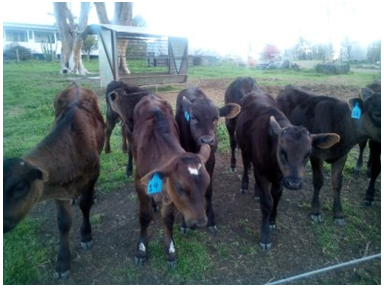
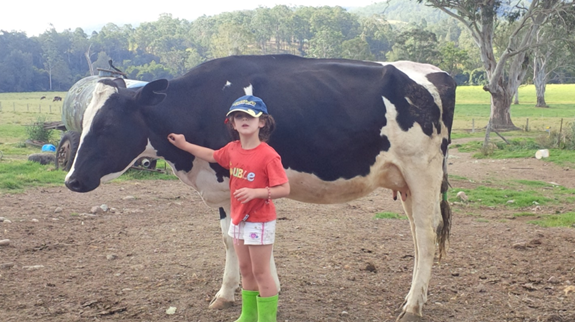
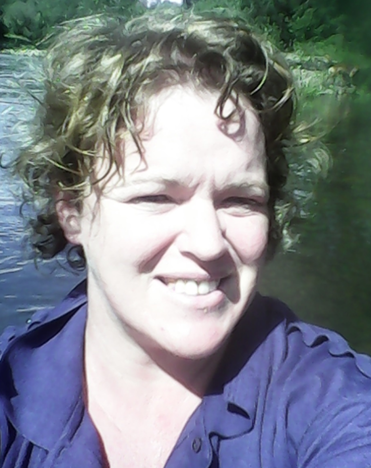
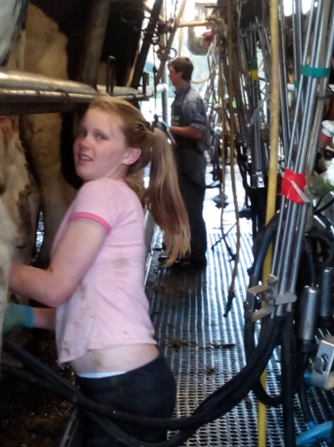
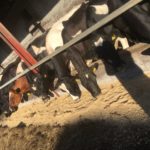
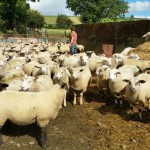
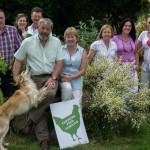
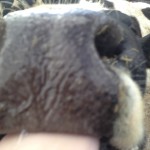
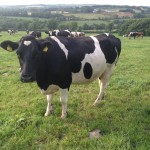
M T McGuire
I loved reading that. Thanks. Like looking through a small window onto someone else’s life and as such, reading it was like taking a brief holiday. Many wise words too.
Cheers
MTM
Lorna
Cheers MTM, I agree, I love looking through those windows too, especially when people are honest in their reflections.